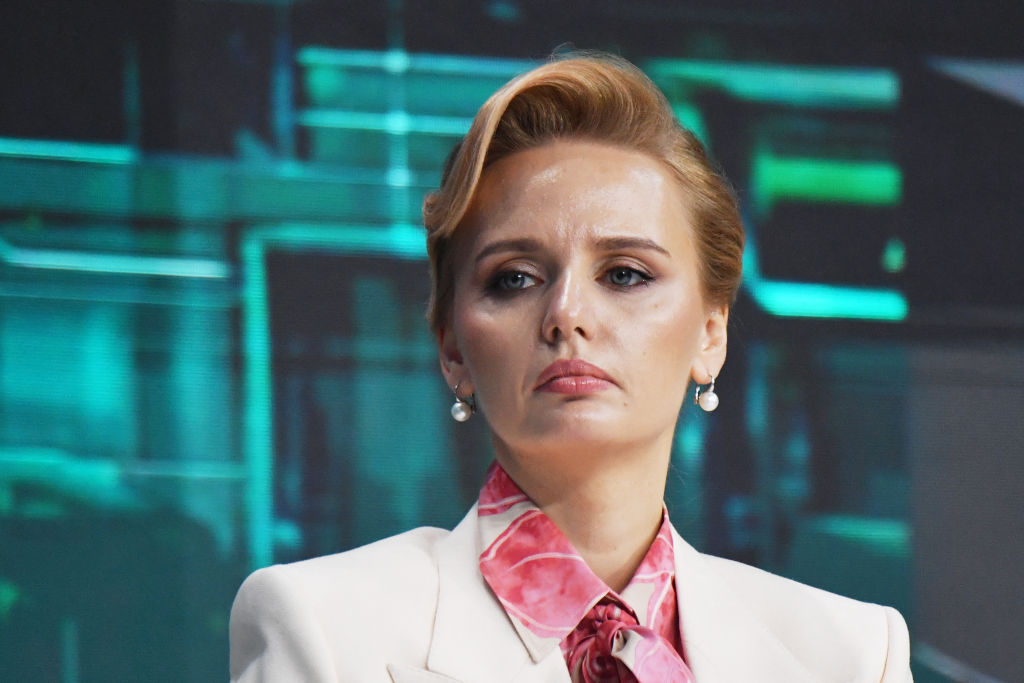It may, of course, be merely a staggering coincidence that Russian President Vladimir Putin this week realised the best person to appoint as his new Deputy Defence Minister is his own cousin, Anna Tsivileva. It would be only the latest in a spate of similar coincidences, as Putin realises that the most suitable candidates for senior roles across government are either his own relatives or those of his closest ministers.
At the same time as Tsivileva’s appointment, Pavel Fradkov — the son of ex-prime Minister Mikhail — was also made Deputy Defence Minister. Back in May, Dmitri Patrushev — the son of former spy chief Nikolai — was appointed Deputy Prime Minister and Boris Kovalchuk — the son of “Putin’s banker” Yuri — was made Chairman of the Accounts Chamber of Russia. Tsivileva is herself married to the recently appointed Energy Minister.
Assuming these are not coincidences and that Putin has not just become very lazy about seeking out candidates, there has been an undeniable uptick in nepotistic appointments of late, as the President fills the gaps left by his ongoing Kremlin purge. While patronage networks have long played an important role in securing influence at the heart of the Kremlin, the civilian Tsivileva’s appointment to the Defence Ministry encapsulates the sense that governing Russia is increasingly becoming a family business.
That is only compounded by a glance at the guest list for June’s St Petersburg International Economic Forum. “Russia’s Davos” doubled up as the family reunion for several of Putin’s inner circle: Security Council Secretary Sergei Shoigu, Kremlin spokesman Dmitri Peskov and Head of the Presidential Administration Anton Vaino attended alongside their children, many of whom are themselves in prestigious state jobs.
Also present were acrobatic rock-and-roll dancer turned tech executive Katerina Tikhonova and scientist Maria Vorontsova, who are better known as Putin’s daughters from his marriage to ex-Aeroflot air stewardess Lyudmila. This is not the first time Putin’s daughters have attended the Forum: in 2021, Tikhonova spoke at a panel about Brics and Vorontsova has previously given interviews on the sidelines.
However, this year both took more prominent roles, Vorontsova chairing a discussion on “bio-economics” and Tikhonova speaking about the defence industry. That was not the end of their moment in the spotlight, with Russian state news agency TASS highlighting in detail not just their participation but also their accomplishments. While TASS did not directly refer to their paternal connection, both women used their “Vladimirovna” patronymics. Such openness is unusual, with Putin being so famously private about his family life that he has referred to his own daughters as “these women” in interviews.
So why is Russia’s President bringing his children — and those of his ministers — to the political front line now? The West’s sanctions and condemnation of the war in Ukraine — as well as Russian restrictions on leaving the country — have made it practically difficult for Russia’s elite offspring to enjoy the lives of overseas privilege that were once their prerogative. Against this backdrop, the promise of a plum job for an ambitious son or daughter serves as one of the remaining ways Putin can reward his siloviki for their loyalty during the Ukraine war — and ensure it for the future.
Surrounding himself with grateful loyalists personalises and consolidates Putin’s power, and he clearly has one eye to the future. The Institute for the Study of War noted that state media coverage of Putin’s daughters at the Forum portrayed them “as authoritative figures” and strove “to introduce them to the Russian public as trustworthy and knowledgeable individuals”.
That is unlikely to be an end in itself but rather part of a wider process of Putin grooming his own and his ministers’ children as future successors. The ISW further notes that Putin is likely creating the “conditions for them to eventually assume high-profile and powerful roles in the Russian government”.
Perhaps the clearest indication of his intentions came at the St Petersburg Forum, when Putin presented a detailed family tree outlining his lineage. The daughters in attendance were conspicuously absent, yet it proved a further sign that Putin believes ruling Russia should remain in the family.











Join the discussion
Join like minded readers that support our journalism by becoming a paid subscriber
To join the discussion in the comments, become a paid subscriber.
Join like minded readers that support our journalism, read unlimited articles and enjoy other subscriber-only benefits.
Subscribe